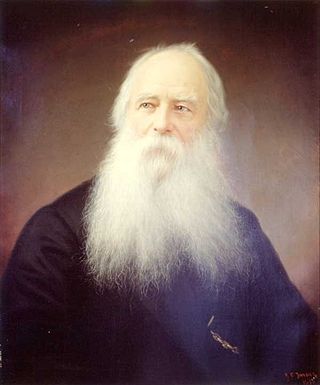Related Research Articles

The Privy Council (PC), officially His Majesty's Most Honourable Privy Council, is a formal body of advisers to the sovereign of the United Kingdom. Its membership mainly comprises senior politicians who are current or former members of either the House of Commons or the House of Lords.

Anne of Cleves was Queen of England from 6 January to 12 July 1540 as the fourth wife of King Henry VIII. Not much is known about Anne before 1527, when she became betrothed to Francis, Duke of Bar, son and heir of Antoine, Duke of Lorraine, although their marriage did not proceed. In March 1539, negotiations for Anne's marriage to Henry began, as Henry believed that he needed to form a political alliance with her brother, William, who was a leader of the Protestants of western Germany, to strengthen his position against potential attacks from Catholic France and the Holy Roman Empire.

Duke of Windsor was a title in the Peerage of the United Kingdom. It was created on 8 March 1937 for the former monarch Edward VIII, following his abdication on 11 December 1936. The dukedom takes its name from the town where Windsor Castle, a residence of English monarchs since the time of Henry I, following the Norman Conquest, is situated. Windsor has been the house name of the royal family since 1917.

William Paget, 1st Baron Paget of Beaudesert, was an English statesman and accountant who held prominent positions in the service of Henry VIII, Edward VI and Mary I.

Thomas Wriothesley, 1st Earl of Southampton, KG was an English peer, secretary of state, Lord Chancellor and Lord High Admiral. A naturally skilled but unscrupulous and devious politician who changed with the times and personally tortured Anne Askew, Wriothesley served as a loyal instrument of King Henry VIII in the latter's break with the Catholic church. Richly rewarded with royal gains from the Dissolution of the Monasteries, he nevertheless prosecuted Calvinists and other Protestants when political winds changed.
John Taylor was Master of the Rolls of the Court of Chancery from 1527 to 1534, following a successful career as a priest and civil servant.

William Henry Lee was a Canadian civil servant and the first Clerk of the Privy Council of Canada.

The Privy Council of England, also known as HisMajesty's Most Honourable Privy Council, was a body of advisers to the sovereign of the Kingdom of England. Its members were often senior members of the House of Lords and the House of Commons, together with leading churchmen, judges, diplomats and military leaders.

Christ Church Cathedral is the cathedral of the Anglican diocese of Oxford, which consists of the counties of Oxfordshire, Buckinghamshire and Berkshire. It is also the chapel of Christ Church, a college of the University of Oxford. This dual role as cathedral and college chapel is unique in the Church of England.

A privy chamber was the private apartment of a royal residence in England.
Sir Francis Bryan was an English courtier and diplomat during the reign of Henry VIII. He was Chief Gentleman of the Privy chamber and Lord Justice of Ireland. Unlike many of his contemporaries, Bryan always retained Henry's favour, achieving this by altering his opinions to conform to the king's. His rakish sexual life and his lack of principle at the time of his cousin Anne Boleyn's downfall led to his earning the nickname the Vicar of Hell.
Events from the year 1546 in Ireland.
William Honnyng (1520–1569) was an English Member of Parliament and Tudor Court official who served as Clerk of the Signet and Clerk of the Privy Council under Henry VIII and Edward VI.

In the Kingdom of England, the title of Secretary of State came into being near the end of the reign of Queen Elizabeth I (1558–1603), the usual title before that having been King's Clerk, King's Secretary, or Principal Secretary.

Edward North, 1st Baron North was an English peer and politician. He was the Clerk of the Parliaments 1531–1540 and Lord Lieutenant of Cambridgeshire 1557–1564. A successful lawyer, he was created the first Baron North, giving him a seat in the House of Lords.
Thomas Bedyll (died 1537) was a divine and royal servant. He was royal chaplain and clerk of the Privy Council of Henry VIII, assisting him with the separation from Rome.

Stefan von Haschenperg was a military engineer employed by Henry VIII of England in the 1540s.
William Clerk may refer to:
Events from the year 1543 in Ireland.
Edmund Molyneux, was a biographer and Secretary to the Lord Lieutenant of Ireland.
References
- ↑ The Last Days of Henry VIII by Robert Hutchinson, p.335